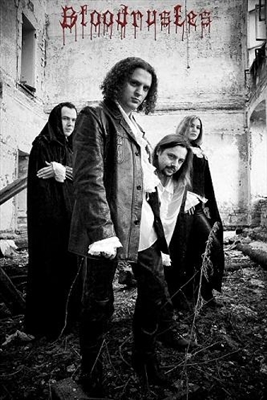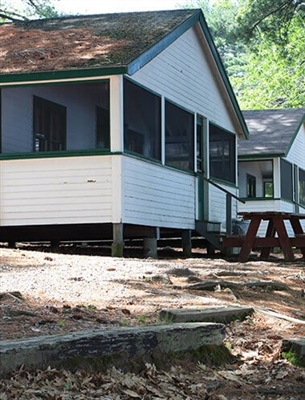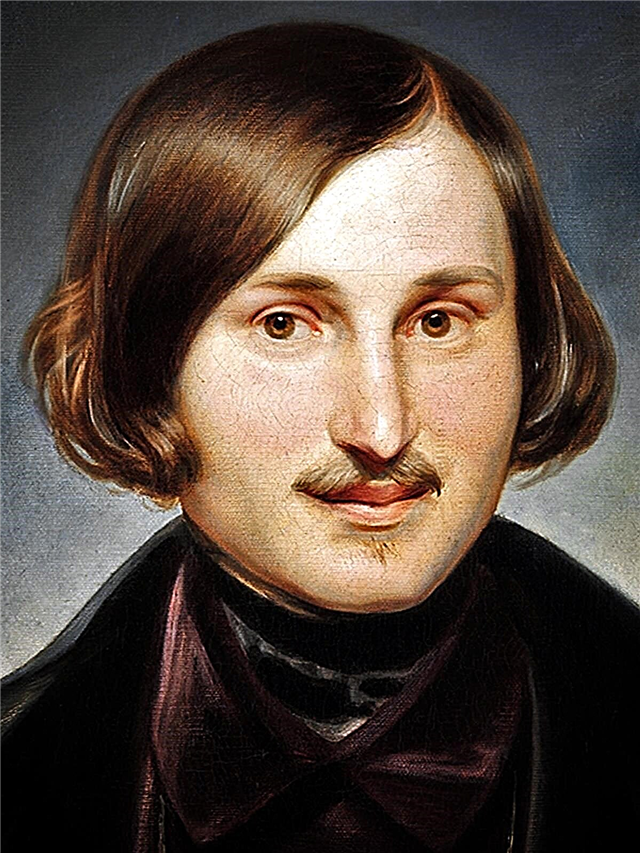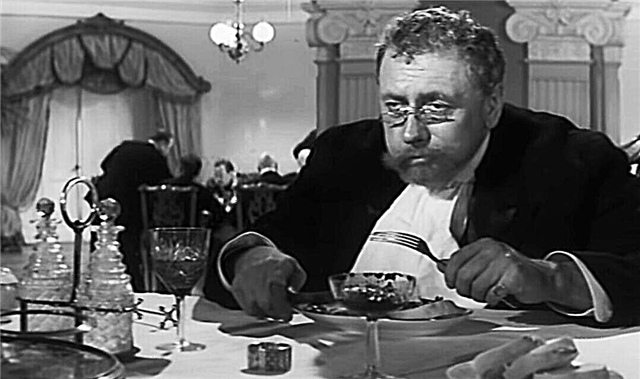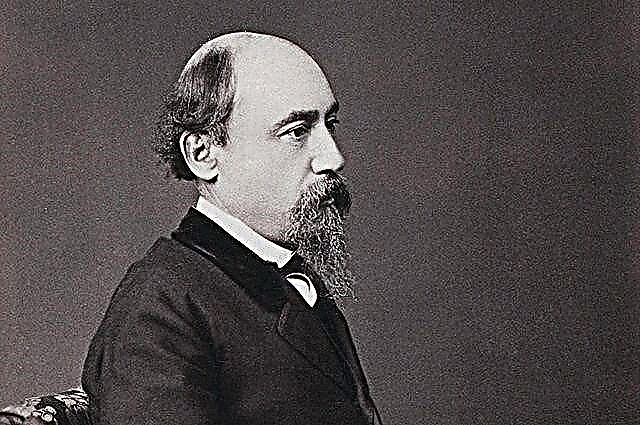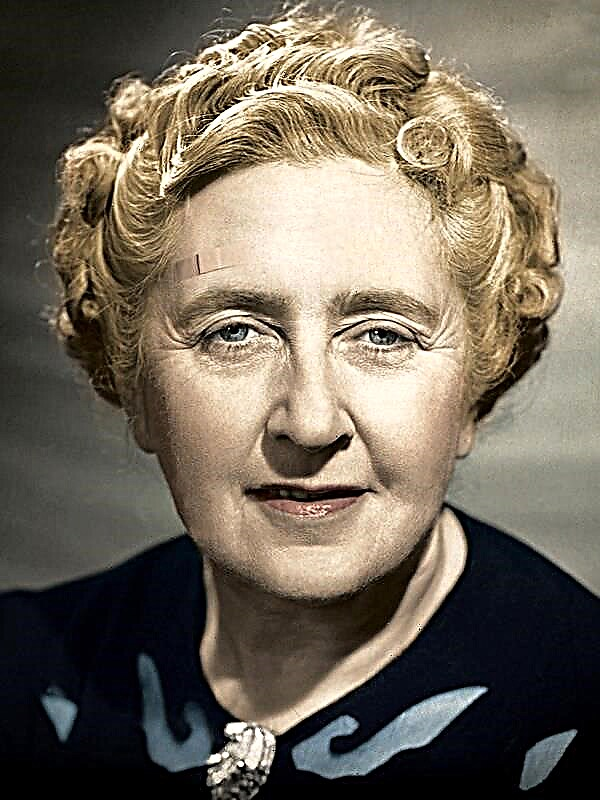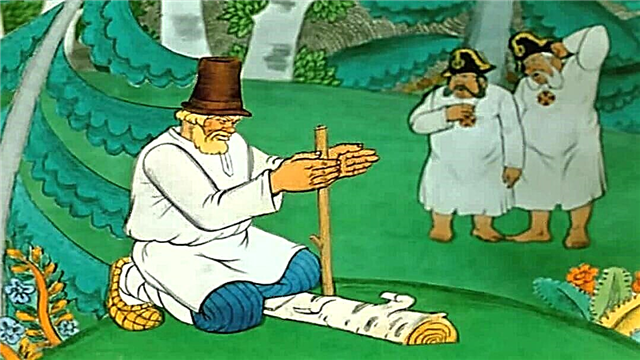The work, which is based on the Byzantine heroic epic, begins with a story about how the Arabian king Amir abducts the beautiful girl of the royal family from the "Greek Land" as his wife. Upon learning of the abduction, her brothers rush in pursuit of Amir to the Saracen land, intending to kill him. When the brothers get to the tent of Amir, he tells them that the body of their sister is on the mountain, where many women and beautiful girls are hacked because she refused to fulfill his will. However, Amir deceives them, and then the brothers have to cast lots - who will go out to fight with him. When the opponents prepare for battle, darkness reigns on the side of Amir, and on the side of the youngest of the brothers, who has three lots to draw the battle, is light, as if from the sun.
And when the younger brother defeats the Arabian king and drags his hair to the brothers, Amir prays for mercy and promises to be baptized for the love of a beautiful girl and become his son-in-law. He tells where to look for the captive, and only making sure that Dmir treated her respectfully and that he is immediately ready to renounce his Saracen (i.e. Muslim) faith, the brothers replace anger with mercy.
By cunning, not speaking about his true intentions, Amir collects rich gifts and goes to the "Greek land".
With a large crowd of people, which even confuses Amir, they baptize him in the Euphrates River, and the patriarch himself performs the rite, and the king of that city becomes his godfather.
Soon, Amir’s mother learns that her son has renounced faith because of his love for the girl; she gives the order to return him from the "Greek Land" with her new wife, but the girl has a prophetic dream, thanks to which the conspiracy is exposed, and the three Saracens who came for Amir are also converted to Christianity and left to live in the "Greek land".
After these events, the king Amir and his wife are born son Devgeny.
Already at twelve years old, Devgeny Akrit (the border guards who guarded the borders of Byzantium were called Akrites) plays with a sword, at thirteen - with a spear, and at fourteen he wants to defeat all animals. At the same time, he is pious and believes that his strength, good fortune and merriment come from God (“I hope in God the creator, that hunting will not be labor, but great joy”). The first exploits of Devgenia - on the hunt: he easily defeats various animals - squeezes the bear so that he dries, tears off the bear’s head, tears the moose, cuts the lion and, in the end, cuts off three heads of a huge snake. From this, the author concludes: "... this is not a simple person, but created by God himself."
Another edition of the “Devgeniya Acts” then tells of the victory of Devgenia over the brave Filipapa and the maiden Maximyana, who decided to take him prisoner, “like a hare in the net”. Filipapa tells Devgenia that there is still a person stronger than Devgenia - Stratig, whose daughter, the "glorious Stratigovna", surpasses all in beauty, but also has masculine audacity and courage. The wise Devgeny learns from a book his fate: if he marries Maximyan, he will live sixteen years, and if he is a girl Stratigovna, then thirty-six years. Having entrusted to father and mother Filipap and Maksimyan and having blessed them, Devgeniy goes to the “conquest” of the bride. He arrives at the courtyard of Stratig, which at that moment is not there, and begins a "siege". Devgeny dresses up in expensive clothes, sings songs, accompanying himself on the harp, and "God helped him in everything."
At first glance, Stratigovna falls in love with Devgeniy, who, without delaying his business, asks Stratigovna if she wants to be his wife or polonyanka?
Perceptions of honor mean a lot to Devgeny, so he explains to Stratigovna that he does not want to become like a thief and secretly lead her away - Stratigovna must tell her father that she was abducted.
When Stratig returns, Devgeny comes back to his courtyard, smashes the gate and waits for Stratig for three hours, calling him with his sons, but Stratig does not believe that someone can dare to behave this way in his yard. Nevertheless, Devgeniya has to abduct Stratigovna, and, having put her on his horse, with songs and praising God, he leaves the yard. But there is no chase, then Devgeniy returns to the house of Stratig again ("I will cover myself with great shame if there will not be a chase after me") and begins to commit atrocities there. Finally, Stratig realizes that Devgenius really did dishonor his house, and begins to call his mighty sons and collect warriors. While Stratig is engaged in military preparations, Devgeny is sleeping, and Stratigovna is guarding his dream.
Finally, Stratig gathers an army, and it approaches Devgeny. Stratigovna wakes him up, and they agree that Devgeny will not kill his future relatives. “Like a strong falcon,” Devgenius strikes “in the middle of the army and, like a good scythe, mows grass: once he jumped, he killed seven thousand, he returned back, he killed twenty thousand.” He catches up with Stratig, strikes him lightly on the helmet, and Stratig prays for mercy, saying that he wishes them happiness with Stratigov. Devgeny captures them, while he binds the sons of Stratig, but does not bind Stratig himself.
Stratig with his sons pray Devgeny to release them, and Stratigovna also joins their requests. Devgenii agrees, but first wants to put his own stigma on them, but Stratigovna manages to dissuade him. In memory of the defeat, Devgeny takes priceless gold items from Stratig and his sons - the great-grandfather's cross and buckles with pearls and precious stones, and then invites them to the wedding. They agree that first three months the wedding will be played by Stratig, and then three months by Devgeny. The author dwells on the description of wedding gifts for a long time, and then concludes that Devgeny is an example for all Christians.
Another feat of Devgeny Akrit is the victory over Tsar Vasily, who "guarded <...> the whole country of Cappadocia." Tsar Basil, having heard of the bravery of Devgenius, decides to enchant him in a rage. Basil sends Devgeny a deceitful letter, where he invites him to his house to marvel at his boldness. Vasily and Devgeniy exchanged letters and ambassadors, while the Cappadocian king from flattering words more and more turns to threats, and Devgeny, revealing his black plans, calls on Vasily to come with a small army to the Euphrates River. Through his ambassador, Devgenius conveys to the arrogant master: “Tell your king: if you rely on your strength, then I trust in the creator God. And your strength cannot be compared with the power of God. "
Reading the words of Devgeniy and listening to the ambassador, Vasily is increasingly enraged, gathers an army and comes forward to meet Devgeniy, but, not seeing his troops, begins to be afraid: “Devgeny learned something about us and thought about it, or he wants to come with a big army ". Devgeny alone confronts the forces of the king, and he, having listened to the boyars ("What is your power worth, the king, if you were afraid of one soldier, you can’t see the troops with him"), decides to fight against Devgeny. Devgeny defeats the enemy army, and the king with a handful of soldiers takes to flight. Devgeny catches up with them, captures them, and then takes the city. Devgeny reigns in the city of Basil, and releases prisoners according to the Scriptures: "There cannot be a slave more than his master, but a son more than his father." Soon, Devgeny puts his father on the throne, saying that he wants to live quietly those twelve years of his life that remained to him.


